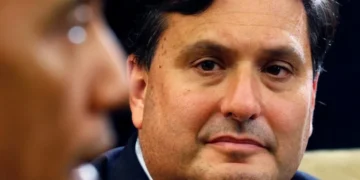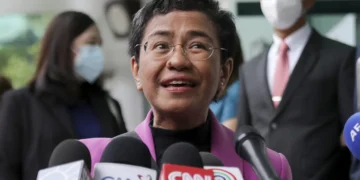Croz was drafted into the Wild Corridor of Notoriety as an individual from both the Byrds and Crosby, Stills, and Nash

DAVID CROSBY, THE vocalist, lyricist, and guitarist who assisted shape the sound of the Sixties with shaking and then some, passed on Thursday at 81 years old. A source near Crosby affirmed the performer’s demise to Moving Stone, however, didn’t uncover a reason.
Crosby was an establishing individual from the Byrds, playing guitar and contributing concordance vocals to a considerable lot of their most persevering melodies, including “Eight Miles High,” “So You Need to Be a Rowdy ‘Star” and “Turn! Turn! Turn!” Not long after being constrained out of the gathering because of character clashes with frontman Roger McGuinn, he shaped the supergroup Crosby, Stills, and Nash with Bison Springfield’s Stephen Stills and Graham Nash of the Hollies. The triplet – which turned into a group of four in 1969 when Neil Youthful joined their positions – assumed a significant part in the improvement of society rock, country rock, and the developing “California sound” that ruled stone radio all through the mid-Seventies. Croz composed a significant number of their most darling tunes, including “Nearly Trim My Hair,” “Long Time Gone” and “This feels familiar.”
“It is with a profound and significant misery that I discovered that my companion David Crosby has passed,” Crosby’s previous bandmate Graham Nash wrote in a proclamation. “I realize individuals will generally zero in on how unstable our relationship has been on occasion, yet what has consistently made a difference to David and me more than anything was the unadulterated delight of the music we made together, the sound we found with each other, and the profound kinship we shared over all these numerous long years.
“David was brave throughout everyday life and in music,” he added.” He abandons a huge void similar to the sheer character and ability in this world. He expressed his real thoughts, his heart, and his energy through his wonderful music and leaves a staggering inheritance. These are the things that make the biggest difference. My heart is genuine with his better half, Jan, his child, Django, and every one individual he has contacted in this world.”
“I’m devastated to find out about David Crosby,” Brian Wilson composed. “David was a mind-boggling ability – such an extraordinary vocalist and musician. Furthermore, a superb individual. I simply am speechless.”
While his prosperity went on during the 1970s and into the Eighties, Crosby’s own life was defaced by weighty medication use, which unleashed destruction on his vocation and prompted a short prison sentence in 1985. However, he recuperated and kept making music and visiting for an additional thirty years. “I have no clue about how I’m alive and Jimi [Hendrix] isn’t and Janis [Joplin] isn’t and all my different companions,” he told Drifter in 2014, years after he’d tidied up. “I have no clue about why me, yet I lucked out.”
David Crosby was brought into the world in Los Angeles in 1941. His dad Floyd Crosby was an Institute Grant-winning cinematographer. He momentarily went to St Nick Barbara City School yet exited to seek after music. In 1964, he joined a band called the Fly Set, comprising Roger McGuinn and Quality Clark. They changed their name to the Beefeaters, and afterward the Byrds. Crosby’s exquisite blending heard on hits like the Bounce Dylan cover “Mr. Tambourine Man” and “Turn! Turn! Turn!,” was a fundamental part of the Byrds’ society rock sound.
By 1967, strains inside the band arrived at a limit, finishing with Crosby’s takeoff from the gathering. Crosby and Stephen Stills, who had as of late disbanded Bison Springfield, started composing melodies together in 1968. They were before long joined by Nash, who had recently stopped the Hollies, and the triplet performed together interestingly at the L.A. home of Cass Elliot of the Mothers and the Daddies. Their self-named 1969 presentation was a hit, delivering the exemplary single “Suite: Judy Blues Eyes,” about Judy Collins.
CSN&Y delivered a live twofold collection, Four Way Road, prior to separating. Crosby recorded his performance debut, On the off chance that I Could Recall My Name, in 1971, supported by Nash, individuals from the Thankful Dead and Jefferson Plane, and Joni Mitchell (what his identity was sincerely engaged with for a period and who broadly contrasted Crosby’s walrus-mustache look with Yosemite Sam). However basically savaged at that point, the sluggish, reflective collection later acquired a faction following, with its impact heard in the contemporary neo-society of Armada Foxes and Mountain Bear. In 1977, Crosby, Stills, and Nash re-gathered for the fourfold platinum CSN. In 1979, they performed at the antinuclear benefit shows supported by Artists Joined for Safe Energy (Dream).
1982’s Sunlight Again was another achievement, delivering the hits “Squandered On the Way” and “Southern Cross.” During these years, Crosby was a regular voice on records by Effortlessness Smooth and Paul Kantner of Jefferson Starship, Hot Fish, and Phil Collins (counting the hit “One More Day In Heaven”).
By the mid-Eighties, however, his illicit drug use was having a ruinous effect. In 1985, he was condemned to jail for quite a long time in the wake of leaving the medication restoration program he was permitted to enter as opposed to carrying out a five-year jail punishment for having cocaine and conveying a weapon. He showed up with Stills, Nash and Youthful at Live Guide while out on bid bond. Crosby arose out of jail in 1986, recently perfect, and wedded his long-lasting sweetheart Jan Dance in 1987. In 1990, he distributed a noteworthy, generally commended journal Long Time Gone.
Adding Neil Youthful sometime thereafter, the group of four played their second gig at Woodstock, before almost 500,000 individuals, declaring the appearance of one of rock’s first — and most prominent — supergroups. CSN&Y’s presentation collection, This feels familiar, sold 7 million duplicates and created the hit singles “Woodstock,” “Show Your Youngsters” and “Our Home.” Crosby later said, “I think when the Beatles bomb blew separated, we were the best band on the planet.”
He got a liver transfer in 1994 and recorded one more collection with CSN, the monetarily fruitless After the Tempest. During the Nineties, Crosby acquired consideration for a novel demonstration of big-name liberality when he turned into the sperm benefactor for Melissa Etheridge and Julie Code. “I’m lamenting the deficiency of my companion and Bailey’s organic dad, David,” Etheridge composed. “He provided me with the endowment of family. I will be for the rest of the time thanks to him, Django, and Jan. His music and inheritance will move for numerous ages to come. A genuine fortune.”
In 1995, he reunited with his son Raymond, who he’d given up for adoption in the Sixties, and they recorded three albums together as CPR. (Crosby’s survivors include three other children, two daughters (Erika and Donovan) and a son Django, the only child of his marriage with Dance.)
Crosby maintained a sense of humor about his troubled past. When he angered the recovery community by admitting he smoked pot, he joked, “Our big crime is that we eat ice cream, let’s face the truth.” He also embraced his rep as the archetypal “Wasted Sixties Guy,”, especially in his emerging acting career. He was a hippie in 1991’s Backdraft, a bartender in 1992’s Thunderheart, and an AA sponsor in an episode of The John Larroquette Show. (He also occasionally appeared as himself on the Simpsons.) Though much more toned down by the 2000s, Crosby remained unapologetic in his pro-gun views. In 2004, he pleaded guilty to criminal possession of a weapon when police found a gun and a small quantity of marijuana in his hotel room the night after a concert in New York. He served no jail time.
Towards the end of his life, Crosby recorded the 2014 solo album, Croz, his first record in 20 years, featuring Raymond among the guest musicians and a cover photo taken by Django. “Most guys my age would have done a covers record or duets on old material,” he told Rolling Stone at the time. “This won’t be a huge hit. It’ll probably sell 19 copies. I don’t think kids are gonna dig it, but I’m not making it for them. I’m making it for me. I have this stuff that I need to get off my chest.”
He followed it up by adding all the more independent collections somewhere in the range of 2016 and 2021. “I’m fuckin fortunate,” he told Drifter in 2021. “I couldn’t say whether I have fourteen days left of life or 10 years, however, it doesn’t make any difference. What matters is how you manage the time. On the off chance that you stay there on your butt and stress over kicking the bucket, you fucking squandered it. I haven’t been squandering it. I’m having a truly great time and feeling brilliant about it. Sometime, something will break. The present moment, my life is perfect.”





































